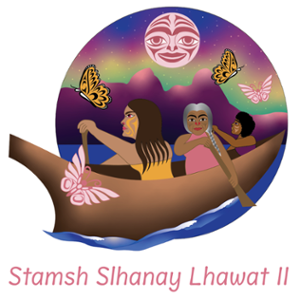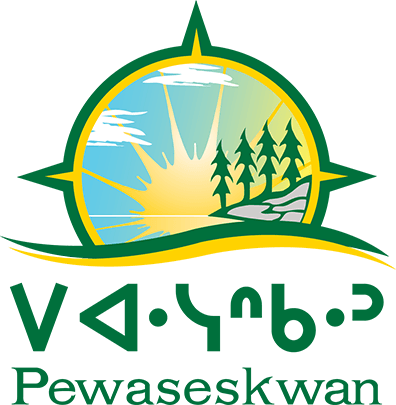 The SSLII Project – Stamsh Slhanay Lhawat II (Squamish for Warrior Women Healing II) will provide meaningful, culturally safe involvement of Indigenous people in the research and the research team. Focusing on urban Indigenous women living in the high-risk environment of Vancouver's Downtown Eastside (DTES), this population-level intervention research will support the wholistic healing and wellness journeys of Indigenous women. Working with and centred on Indigenous women residing in this area, the project will design and deliver a land- and culture-based healing curriculum, including gender-specific and trauma-informed land- and culture-based healing and expressive therapies, reinforced by family involvement. We build on the findings and successes from our CIHR-funded catalyst pilot titled, Stamsh Slhanay Lhawat (SSLI), notably that a connection with the land and cultural identity are vital for urban Indigenous women to begin and sustain their healing journey. Indigenous women residing in urban areas are overrepresented in infectious diseases, such as HIV and hepatitis C. Overcome with poverty and intergenerational trauma, urban Indigenous women frequently find themselves in street-level survival sex work and/or street drug use, exposing them to multiple health-related harms, diseases and multi-faceted violence. Indigenous women are also subjected to high rates of violence and exploitation.
The SSLII Project – Stamsh Slhanay Lhawat II (Squamish for Warrior Women Healing II) will provide meaningful, culturally safe involvement of Indigenous people in the research and the research team. Focusing on urban Indigenous women living in the high-risk environment of Vancouver's Downtown Eastside (DTES), this population-level intervention research will support the wholistic healing and wellness journeys of Indigenous women. Working with and centred on Indigenous women residing in this area, the project will design and deliver a land- and culture-based healing curriculum, including gender-specific and trauma-informed land- and culture-based healing and expressive therapies, reinforced by family involvement. We build on the findings and successes from our CIHR-funded catalyst pilot titled, Stamsh Slhanay Lhawat (SSLI), notably that a connection with the land and cultural identity are vital for urban Indigenous women to begin and sustain their healing journey. Indigenous women residing in urban areas are overrepresented in infectious diseases, such as HIV and hepatitis C. Overcome with poverty and intergenerational trauma, urban Indigenous women frequently find themselves in street-level survival sex work and/or street drug use, exposing them to multiple health-related harms, diseases and multi-faceted violence. Indigenous women are also subjected to high rates of violence and exploitation.
The proposed research aims to enhance and nurture urban Indigenous women’s connections with their culture leading towards improved wholistic health and wellness. Indigenous-centred and gender-specific wellness interventions are urgently needed by urban Indigenous women in high-risk environments, who often experience poverty, racism, stigma, addictions, and chronic and infectious diseases. Participants are expected to continue the healing they initiated through SSLI and other land- and culture-based healing activities, achieving increased wellness, spiritual independence and cultural wisdom.
Our Peer and Community Research Associates will lead and actively participate in knowledge mobilization, as they have in our previous studies. The findings from this study can be used to inform Indigenous wellness care and services planning with urban Indigenous populations across Canada and other similar settler-colonial nations. The study’s findings will be shared with the Native Women’s Association of Canada (NWAC) to help inform their directions regarding Indigenous women, girls and gender-diverse people living in inner-city environments.
This project is funded by the CIHR.
For more information contact Nicole Smith suv812@mail.usask.ca


